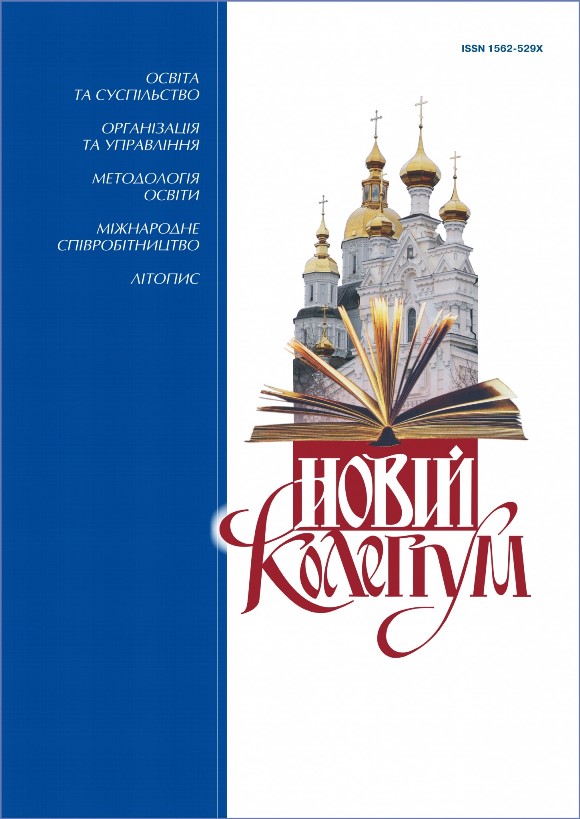Distance technologies - methods of dynamic perception of information as a basis for updating the content of education
DOI:
https://doi.org/10.30837/nc.2020.3.25Keywords:
distance education, teaching methods, higher education, content of educationAbstract
The work is devoted to the study of students' attitude to the use of information technology in the educational process. The results of the survey of students on the perception of teachers and students of the process of information learning and the assimilation of materials for the courses they have mastered are analyzed.
Research is aimed at increasing the scientific mobility of students and teachers in the field of technical education by means of the introduction of distance learning methods and the ability to update the content of education. The main attention is paid to methods of updating information support of students for each type of classes, methods of combining general knowledge in specialties, which help to strengthen interdisciplinary links, methods of tracking course terminology and methods of combining theoretical and practical parts of the discipline.
The analysis of the use of remote technology in the conditions of COVID-19 is carried out. The world experience and the experience of Ukrainian universities are analyzed. The positive and negative aspects of distance learning are characterized from points of view of teachers and students.
The purposes and tasks facing students in the system of technical and physical and mathematical education in the conditions of distance learning are defined. The factors influencing quality of training experts in technical and physical and mathematical specialties in the conditions of distance learning technologies are discussed.
It is determined that the full or partial use of modern distance technologies will allow to achieve a qualitatively new level of higher education, which largely depends on understanding and using the modern information and communication technology. Methods of quality management of continuous technical and physical and mathematical education are defined. These methods will allow to train competitive professionals who will not only meet the current level of development of science and technology, but also ahead of it.
References
Третьякова Ю.В.. Застосування технологій дистанційного навчання для підвищення якості засвоєння навчального матеріалу // Зб. наук. К-ПНУ ім. І.Огієнка. 2013. Вип. 19. С. 706-715.
Стрілкова Т.О., Шмідт А.О. Вплив інформаційних цифрових технологій на якісь сучасної технічної освіти // ХVІІ Міжнар. наук.-практ. конф. Побудова інформаційного суспільства: ресурси і технології. Київ, 2019. С. 293-296.
Markus Deli Girik Allo. Is the online learning good in the midst of Covid-19 Pandemic? The case of EFL learners // Jurnal Sinestesia, vol. 10, no 1, pp. 1-10, 2020.
Sujarwo, Sukmawati, Akhiruddin, Ridwan, Suharti Siradjuddin. An analysis of university student’s perspective on online learning in the midst of Covid-19 pandemic // Jurnal Pendidikan dan Pengajaran, vol. 53 (2), pp. 125-137, 2020, DOI: 10.23887/jpp.v53i2.24964.
Aini Zuriyati Abdul Kadir, and Nur Sukinah Aziz. Learning Management System of Higher Education Institution // Indian Journal of science and Technology, vol. 9 (9), pp. 1-5, 2020, DOI: 10.17485/ijst/2016/v9i9/88717.
Полунина А.Г. Эпизодическая память: неврологические и нейромедиаторные механизмы / А.Г. Полунина, Е.А. Брюн // Анналы клинической и экспериментальной неврологии. 2012. Т. 6. № 3. С. 53-60.
Пятайкіна М.І. Дистанційні технології – основа динамічного оновлення змісту технічної освіти // XXIV Міжнар. молодіжний форум «Радіоелектроніка та молодь у ХХІ столітті». Зб. матеріалів форуму. Т. 1. Харків : ХНУРЕ. 2020 С. 57-58.

